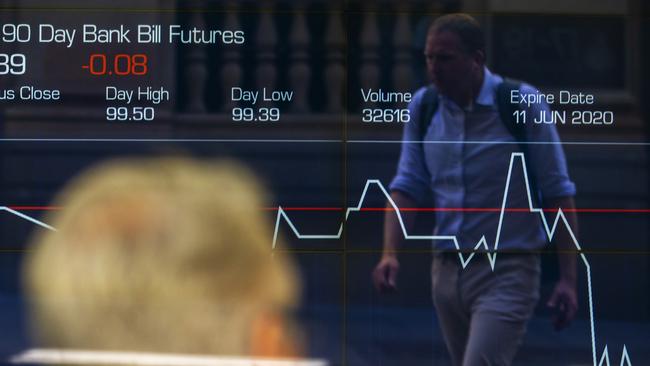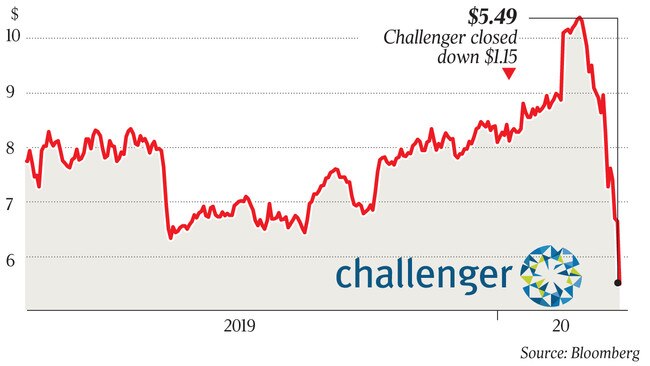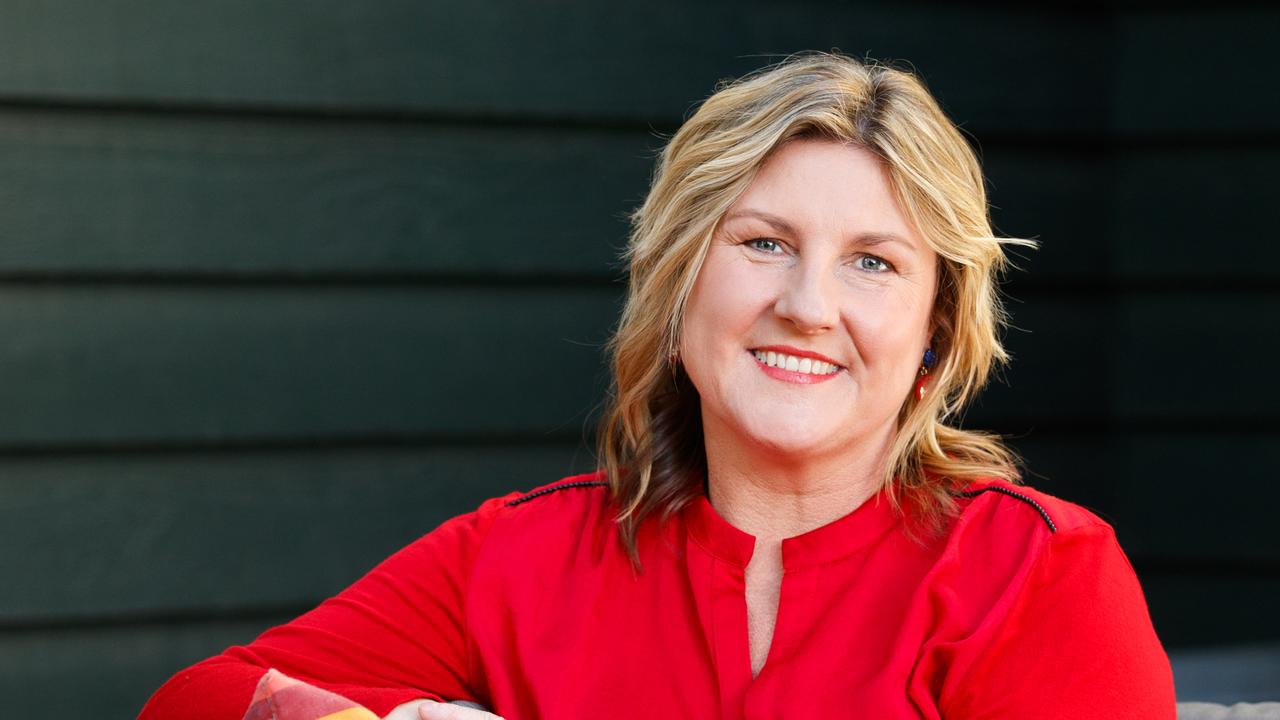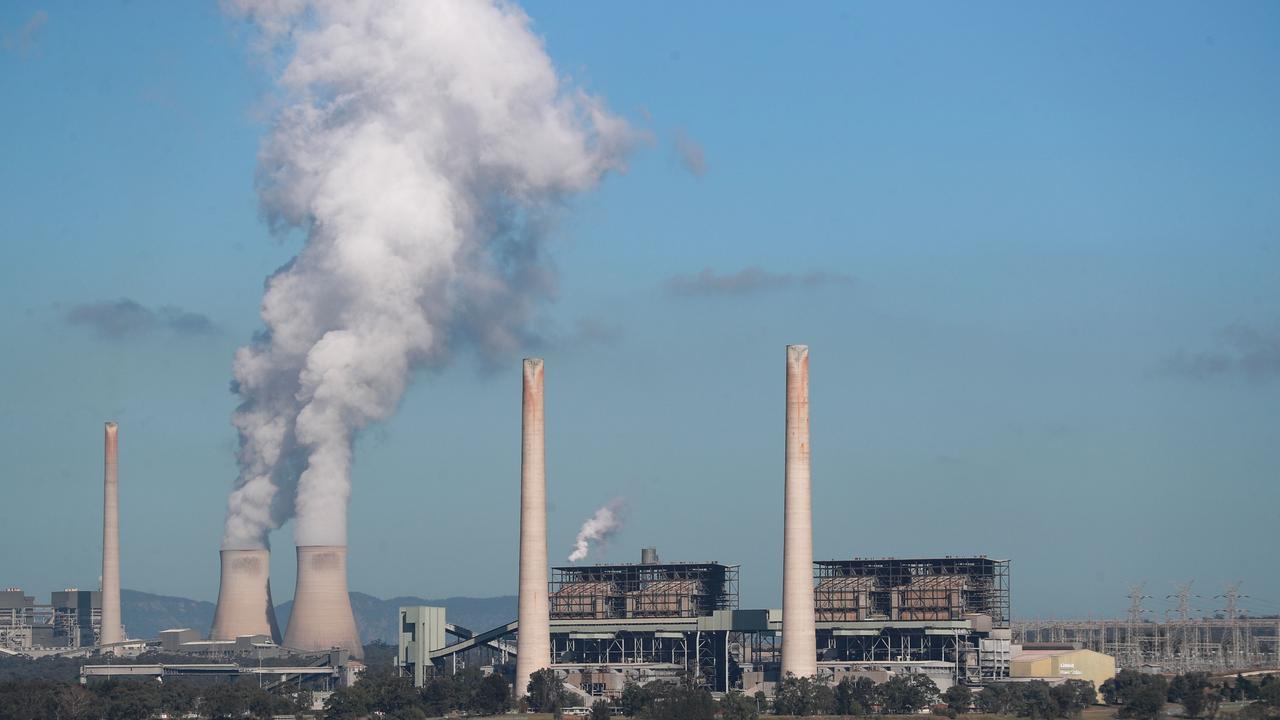Forecasts abandoned as uncertainty reigns
The coronavirus pandemic is stalking the company boardrooms and swinging a scythe through profit forecasts.

The coronavirus pandemic is stalking the boardrooms of Australian corporates and swinging a scythe through profit forecasts, capital raisings and business plans, with dozens of ASX-listed companies ripping up their earnings outlooks for 2020, making forecasts given only weeks ago now totally irrelevant.
Some of the nation’s biggest stocks such as global shopping centre landlord Unibail-Rodamco-Westfield and bionic ear implant maker Cochlear have walked away from giving any profit guidance or admitted they just can’t predict how the health crisis will affect the financial crisis. At the other end of the spectrum micro-caps in technology, mining and media also admitted earnings uncertainties.
Monday morning kicked off with bad news as soon as the ASX began issuing company notices. The first statement on the exchange was from New Zealand-based travel tech minnow Serko, which dumped earnings guidance three weeks ago that predicted a dip in earnings.
“Due to the rapidly increasing uncertainty surrounding the duration and scale of the COVID-19 outbreak, and the impact it and the related border control restrictions are having on corporate travel, (Serko) has today announced it is withdrawing its full year 2020 revenue guidance,’’ the company said.
“The spread of the virus and subsequent increase in border access restrictions is making it difficult to predict the impact the virus is likely to have on Serko’s year-end position,’’ CEO Darrin Grafton said.
“On this basis, we think it is prudent to withdraw guidance at this time.’’
Serko shares dived 25 per cent.

This advice would be repeated throughout the day and fittingly the market ended with one of its biggest companies providing similar earnings and operational uncertainty.
Unibail-Rodamco-Westfield, the $18bn shopping centre behemoth with centres across Australia, Europe and North America, was an obvious victim of the clampdown on large social gatherings by governments, especially in Europe where the company has the bulk of its properties.
“At this stage, it is too early to determine the situation’s impact on the contractual obligations of the group’s retailers and other partners or to estimate the effect of any case-by-case support measures the group may decide on,’’ the shopping centre landlord said.
“The group has started an active dialogue with its tenants on how to address these unprecedented challenges.
“In addition, URW is actively reducing non-staff expenses, deferring non-essential capital expenditure and will make use of any relevant facilities or arrangements provided by the various national authorities to assist companies through the crisis.”
The latest profit reporting season ended only a few weeks ago, and it was just five months ago that publicly listed companies were providing their profit and revenue guidance for 2020. Now all those grand plans, hopes and targets look mostly unachievable or irrelevant and share prices are sinking as a response.
Cochlear CEO Dig Howitt on Monday warned of a lengthy recovery when the coronavirus pandemic passed, predicting that hearing implants for adults and the elderly are likely to be a lower priority for the healthcare sector than other elective surgery, fuelling a drag on earnings.
Accordingly, Cochlear abandoned its full-year guidance on Monday — just a month after it warned the COVID-19 virus would wipe up to $30m off its profit.
“There will be many elective surgeries that will be deferred and there will be pretty significant competition for operating theatre space when things do recover,” Mr Howitt said.
“I’m just cautioning against taking out the demand from the next few months and piling it in to the few months after that.
“We don’t expect that to happen.”
Midcap companies have also been caught in the coronavirus crossfire, with businesses such as advertisers oOh!Media conceding that these volatile and uncertain times made it extremely difficult to provide an outlook, and as such the advertiser was withdrawing its earnings guidance for 2020.
Others to withdraw guidance included Auckland Airport, hit by the tough travel restrictions now imposed by the New Zealand government, and Apollo Tourism & Leisure, whose shares fell 39 per cent on Monday as it ripped up forecasts.
Challenger, one of the biggest investors in junk corporate bonds, threw away earnings guidance just months old. Its shares fell 17 per cent.
More capital raisings fell over, with Imricor Medical Systems pulling its security purchase plan, adding to a host of other companies that last week binned capital raisings and share purchase plans.
Other companies took the opportunity to reconfirm their strong cash balances or conservative debt positions, hoping this would win over investors or at least cushion the share price falls.
There were some bright spots on the sharemarket, however. The Reject Shop became the first national retailer to say the panic buying sweeping Australia in the wake of the coronavirus outbreak had put a rocket under its sales.
Reject Shop’s same-store sales have risen more than sixfold in recent weeks compared the same period in 2019.
It also said product from China was arriving.
“In the last three weeks, The Reject Shop has experienced a material increase in sales driven by customer concerns around coronavirus,” the company said.
Like-for-like sales for the first 11 weeks of the second half of fiscal 2020 were up 5.7 per cent, it added.
As announced on February 27, comparable sales for the first eight weeks of the second half of 2020 were up 2.3 per cent. Comparable sales for the three-week period between 24 February to 15 March 2020 were up 15.1 per cent.
This was driven by strong category performances in cleaning, groceries, toiletries and pet care.
The news might have helped the share price.
In Monday’s carnage shares in The Reject Shop closed unchanged.



